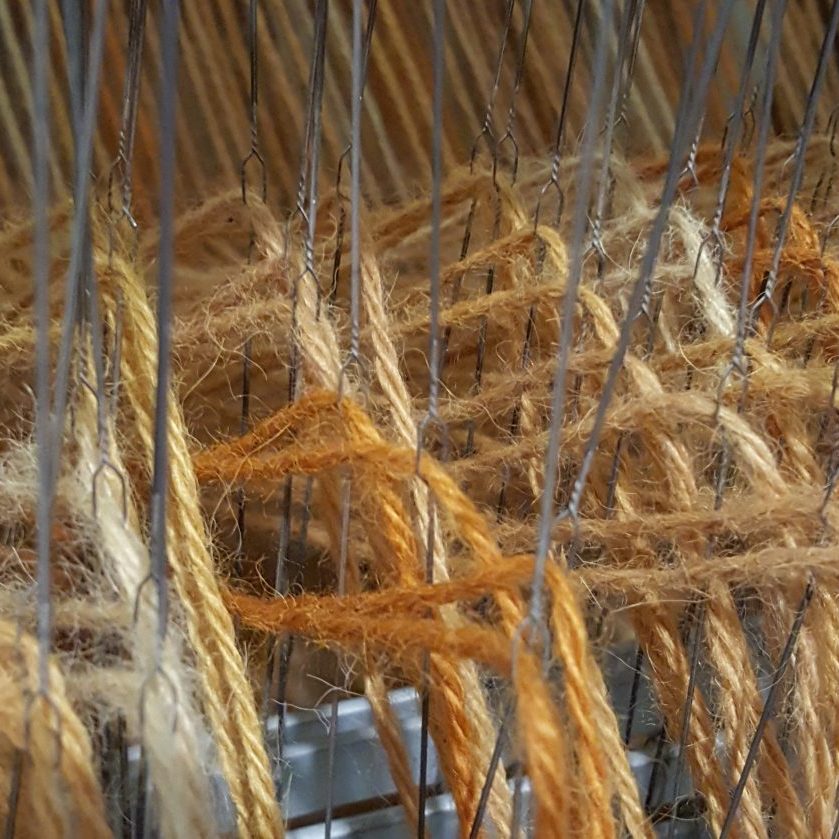extraction de couleur facilitée par la fermentation décomposition, Farbextraktion durch Fermentiern Zersetzung, extracción de color ayudada por la fermentación decomposition, eastóscadh datha le cabhair ó choipeadh dhíscaoileadh
After finding a bag of sliced avocado pits in the freezer (and sneaking them out before I could get reminded how long they’d been in there), I decided to go for fermentation. I read somewhere that the potentially damaging (to the fibre) effect of adding an alkaline substance to aid in colour extraction would be negated by allowing the liquor with plant material left in to ferment. Hmm… wouldn’t the addition of bicarb or anything similar prevent fermentation?
I tried anyway and was right in that the mixture did not ferment. However, leaving it for some time – how long? dunno – allowed the sliced pits to partially disintegrate. The liquor was noticeably richer (redder) in colour and the plant material was dense enough to be strained out of the liquid before dyeing. The mould that had formed on top separated easily, too.
 The results were not sufficiently different from dyeing without pre-treatment to warrant such a lengthy procedure, although I may well try fermenting without adding bicarb in future.
The results were not sufficiently different from dyeing without pre-treatment to warrant such a lengthy procedure, although I may well try fermenting without adding bicarb in future.
The two cotton samples did show some variation in tone between mordanted (alum acetate) and non-mordanted, not in depth of colour.
